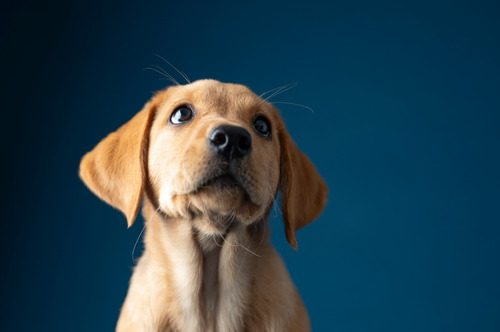Reverse Sneezing in Dogs: Causes, Treatments, and When to Worry
If your dog has ever suddenly started making loud snorting or honking sounds, you may have felt alarmed or unsure about what was happening. This unusual breathing episode, often called “reverse sneezing,” can be a cause of concern for many dog owners. Although it may look and sound distressing, reverse sneezing in dogs is typically harmless and brief. However, it’s important to understand the causes behind it, know when it’s time to seek veterinary care, and learn the treatment options available.
For pet owners in the Canton, GA area, the experienced team at Riverstone Animal Hospital can provide support and care for any breathing concerns your dog may have. If you have questions about reverse sneezing or are worried about your pet’s health, call us at (770) 479-7141 or book an appointment online.

What Is Reverse Sneezing in Dogs?
Reverse sneezing, also known as paroxysmal respiration, occurs when a dog rapidly pulls air in through the nose in response to an irritation or inflammation in the nasal or throat area. Unlike typical sneezing, which pushes air out, reverse sneezing draws air in, creating a snorting or gagging sound. The episode may last from a few seconds to a minute, and dogs will often stand still, extend their necks, and appear to struggle as they reverse sneeze. Most of the time, reverse sneezing is harmless and self-limiting, meaning it stops on its own without causing any health issues. However, recurring episodes can indicate an underlying cause that may need veterinary attention.
Common Triggers of Reverse Sneezing
- Dust, pollen, and other environmental allergens can irritate the throat and nasal passages.
- Cleaning products, perfumes, cigarette smoke and other irritants can trigger episodes.
- Increased excitement or anxiety can lead to reverse sneezing.
- Rapid shifts in temperature, such as going from warm to cold, may trigger reverse sneezing.
- Small particles, grass, or seeds lodged in the nasal cavity can cause irritation.
Causes of Reverse Sneezing in Dogs
The causes behind reverse sneezing range from environmental factors to physical sensitivities. Here are some of the most common reasons dogs may experience reverse sneezing:
- Environmental Allergies: Similar to humans, dogs can have allergic reactions to various environmental elements. Pollen, mold, dust mites, and other allergens may lead to inflammation in the nasal passages, triggering reverse sneezing episodes.
- Nasal Mites: These tiny parasites, often contracted from outdoor spaces, can irritate a dog’s nasal cavity and lead to reverse sneezing.
- Respiratory Infections: Bacterial or viral infections in the respiratory tract may increase mucus production, causing reverse sneezing as a response to the congestion.
- Structural Issues: Some breeds, especially brachycephalic (short-nosed) breeds, like Bulldogs and Pugs, have anatomical structures that can predispose them to respiratory issues, including reverse sneezing.
- Foreign Objects: If a dog inhales dust, a blade of grass, or other small particles, reverse sneezing may be the body’s way of expelling the irritant.
When Should You Worry About Dog Reverse Sneezing?
While reverse sneezing in dogs is usually not a cause for concern, there are situations where it’s best to consult a veterinarian. Prolonged episodes, frequent occurrences, or accompanying symptoms could indicate a need for medical evaluation. Here are a few signs that may suggest it’s time to reach out to Riverstone Animal Hospital:
- If reverse sneezing episodes are happening several times a day, it’s worth checking with your veterinarian.
- Episodes lasting more than a minute or becoming prolonged can indicate respiratory irritation.
- Coughing, nasal discharge, lethargy, or decreased appetite can suggest an underlying issue.
- If your dog struggles to breathe normally after an episode or experiences wheezing, seek immediate veterinary care.
While rare, severe respiratory issues may sometimes be mistaken for reverse sneezing. To ensure your dog’s health and comfort, contact Riverstone Animal Hospital if you have any concerns about frequent or intense episodes of dog reverse sneezing. Call us at (770) 479-7141 or book an appointment online if you’re in the Canton, GA, area.
How Is Reverse Sneezing in Dogs Treated?
Most of the time, treatment for reverse sneezing is not required because episodes resolve on their own. However, if reverse sneezing becomes a frequent issue, your veterinarian may suggest treatments based on the underlying cause. Here are some possible options for treating or managing dog reverse sneezing:
- Allergy Management: If environmental allergies are causing reverse sneezing, your vet may recommend antihistamines or other allergy relief methods. Limiting your dog’s exposure to known allergens can also help reduce episodes.
- Irritant Avoidance: Avoid using cleaning products, perfumes, or other strong scents around your dog, as these can irritate the nasal passages.
- Parasite Control: If nasal mites are suspected, your veterinarian may prescribe antiparasitic medications.
- Respiratory Infections: For reverse sneezing due to respiratory infections, treatment may involve antibiotics, anti-inflammatories, or other supportive therapies as needed.
- Breathing Exercises: In some cases, gently massaging your dog’s throat during an episode or covering their nostrils briefly may help them swallow and stop the episode.
Each treatment is based on the root cause, so it’s essential to consult your veterinarian before attempting any home remedies. Riverstone Animal Hospital’s team is ready to assess and provide appropriate care options to keep your dog’s breathing comfortable.
How to Prevent Reverse Sneezing in Dogs
While you may not be able to prevent every episode of reverse sneezing, certain steps can reduce the frequency of occurrences. Here’s what pet owners can do to help keep their dogs comfortable and minimize reverse sneezing episodes:
- If your dog has known environmental allergies, limit exposure to allergens like pollen and dust. Using an air purifier in your home can also help.
- Regular veterinary checkups allow for early detection of respiratory issues and help address potential problems before they escalate.
- Household chemicals, perfumes, and scented products can irritate your dog’s nasal passages, so it’s best to keep these products away from their environment.
- Sudden excitement can trigger reverse sneezing episodes. Offering your dog a calm environment during play or exercise can help minimize occurrences.
Most reverse sneezing episodes are harmless and end quickly. However, prolonged or frequent occurrences warrant a closer look. By understanding the causes and treatments available, pet owners can better respond to reverse sneezing episodes and seek care when necessary. If you notice that your dog’s reverse sneezing episodes are increasing in frequency or accompanied by other symptoms, it may be time to reach out to a veterinarian. At Riverstone Animal Hospital, we’re here to help with all of your pet’s respiratory needs. Our team is committed to ensuring your dog’s health and comfort, and we’re available to assess any concerning symptoms. If you’re in the Canton, GA, area and need assistance, call us at (770) 479-7141 or book an appointment online for personalized care.
